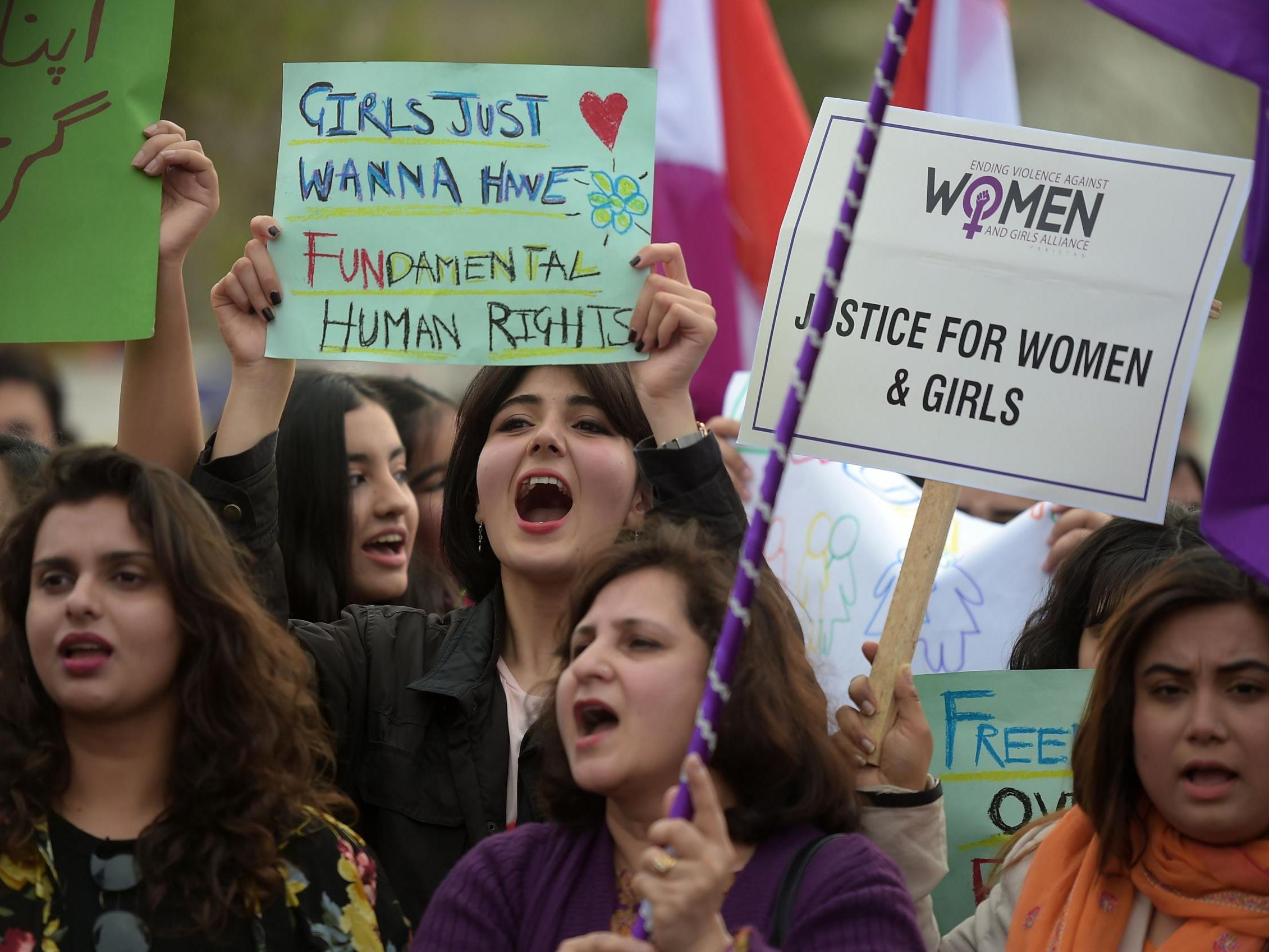‘Feminism panel’ without a single woman on it provokes outrage in Pakistan
‘Before women feminists find platforms and a political voice, men are helping themselves to more’

Your support helps us to tell the story
From reproductive rights to climate change to Big Tech, The Independent is on the ground when the story is developing. Whether it's investigating the financials of Elon Musk's pro-Trump PAC or producing our latest documentary, 'The A Word', which shines a light on the American women fighting for reproductive rights, we know how important it is to parse out the facts from the messaging.
At such a critical moment in US history, we need reporters on the ground. Your donation allows us to keep sending journalists to speak to both sides of the story.
The Independent is trusted by Americans across the entire political spectrum. And unlike many other quality news outlets, we choose not to lock Americans out of our reporting and analysis with paywalls. We believe quality journalism should be available to everyone, paid for by those who can afford it.
Your support makes all the difference.A panel discussion on feminism that did not feature a single woman as a guest has been hastily reorganised after sparking ridicule and outrage.
The debate, entitled Understanding Feminism, is being staged by the arts council of Pakistan.
Uzma al-Karim, who is hosting the discussion, was the only woman featured in the initial programme – although her name was placed at the bottom of adverts.
Organisers said: “You will see some very notable people of our country shedding light on the topic from their point of view.”
However, after widespread lampooning and criticism of the obvious flaw in an all-male discussion of feminism, the council added two female speakers to the discussion.
Mehtab Akbar Rashdi, a feminist campaigner, and Quatrina Hosain, a journalist, are now scheduled to talk.
Materials advertising the event have been changed to make Karim’s name more visible.
The name of the discussion has been amended from Feminism: The Other Perspective to Understanding Feminism after the initial title provoked criticism.
“Our purpose was to get men having decision-making powers in major media houses and those with a following to talk about their understanding of feminism,” Karim told BBC Urdu.
“We wanted to register their perception because they were in a position to influence public opinion. And that’s why we called it ‘The Other Perspective’.”
Jibran Nasir, a human rights campaigner scheduled to be on the panel, argued the initial title of the panel was “misleading”.
He tweeted: “I was informed the panel is about men talking to other men about rethinking masculinity and why as men we need feminism. It wasn’t to explain feminism or talk about women issues as men”.
Critics on social media hit out at the council for hosting a discussion on feminism with no female speakers – with comedian Shehzad Ghias Shaikh jokingly asking people to join him “in teaching the world about women’s lives”.
“This Friday I’ll be giving a workshop on how to menstruate at the arts council of Pakistan followed by a talk on breastfeeding children,” he quipped on Twitter. “Ten per cent discount for all attendees on my pregnancy management course. Please join me in teaching the world about women’s lives.”
One Twitter user said: “This is such a horror. Before women feminists find platforms and political voice, men [are] helping themselves to more. Opposite of feminism.”
Elmira Bayrasli, chief executive of Foreign Policy Interrupted, an organisation which strives to tackle gender disparity in the press, told The Independent: “It is certainly unfortunate that a panel on feminism is addressed by men. Singling out Pakistan is not helpful however. Women face bias and challenges everywhere – not just in places like Pakistan.
”How many times have we turned on the TV to see men debating issues of abortion or reproductive rights in the United States? It is men in the US that make laws about women’s bodies. If we want to see gender advancement everywhere, we need to start at home. The US and western Europe have a lot more work to do in terms of supporting women and creating opportunities for their advancement.“
Pakistan has one of the lowest rankings in the world for gender equality and the World Bank estimates almost one in three married Pakistani women report facing physical violence.
A Thomson Reuters Foundation study last year ranked Pakistan as the sixth most dangerous country for women.
Women are the victims of thousands of cases of violence against them each year which range from “honour” killings to rape, acid attacks, sexual harassment and kidnappings.
Join our commenting forum
Join thought-provoking conversations, follow other Independent readers and see their replies
Comments